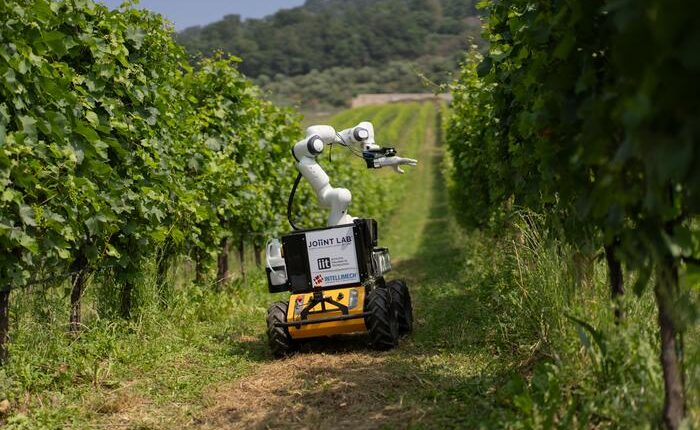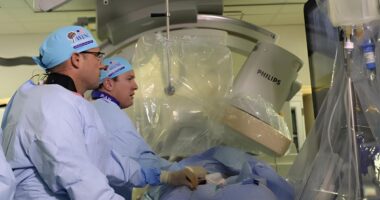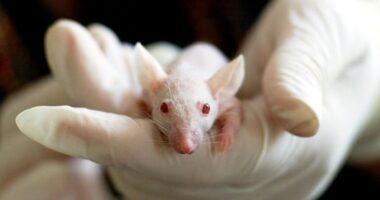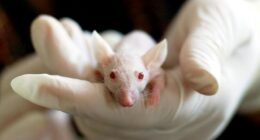A robotic vineyard worker equipped with artificial intelligence and a gentle robotic hand has begun autonomous operations in Italian vineyards, addressing chronic labour shortages facing the wine industry.
Frasky, developed by researchers at the Italian Institute of Technology in Genova, can navigate independently through vineyard rows while monitoring crops, manipulating grape clusters and applying selective treatments to vines.
The prototype combines a commercially available four-wheeled outdoor platform with a custom robotic arm featuring an integrated camera system that maps surroundings and identifies grape clusters with precision.
“Integrating robotics and artificial intelligence in agriculture allows us to develop increasingly advanced models of precision farming,” said Manuel G. Catalano, IIT researcher and project coordinator. “It enables more efficient and targeted use of resources, reduces environmental impact, and offers concrete support to farmers and wine producers.”
The robot addresses mounting challenges in agriculture including environmental sustainability demands and workforce shortages exacerbated by climate change impacts. Its modular design allows farmers to integrate tools according to specific needs, with the robotic hand incorporating a nozzle for applying targeted vineyard treatments.
Frasky’s software operates through three core modules covering navigation, environmental perception and manipulation tasks. The system creates detailed vineyard maps while enabling targeted actions such as grasping grape bunches, visual inspection and treatment application.
Field testing took place at Le Corne vineyard in Grumello del Monte near Bergamo, following laboratory validation on artificial vineyard setups. The trials demonstrated successful autonomous movement, environmental mapping and treatment application capabilities.
The technology offers several operational advantages including precise digital crop monitoring, assistance with repetitive farming tasks and improved treatment accuracy that reduces chemical waste. These benefits translate into environmental protection and reduced human exposure to potentially harmful substances.
Designing agricultural robots presents significant technical challenges, researchers noted. Vineyard terrain remains uneven and subject to seasonal changes, weather variations and plant growth that can obstruct robot movement and visibility as foliage becomes denser.
The manipulation of fruit requires particular dexterity and gentleness due to the deformable and easily damaged nature of grapes, demanding sophisticated robotic control systems.
“We are currently working to make Frasky even more flexible, autonomous, and capable of adapting to various agricultural contexts,” added Francesca Negrello, IIT researcher and JOiiNT LAB technology manager.
The project emerged from collaboration between IIT and the JOiiNT LAB industrial consortium, which includes partners from the Bergamo area such as Consorzio Intellimech, Confindustria Bergamo, the University of Bergamo and Kilometro Rosso Innovation District.











